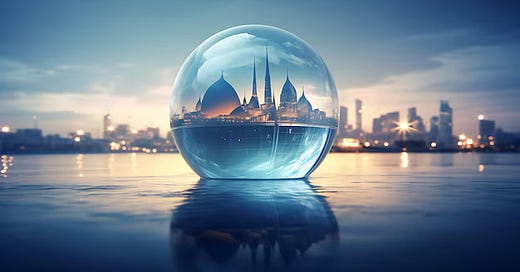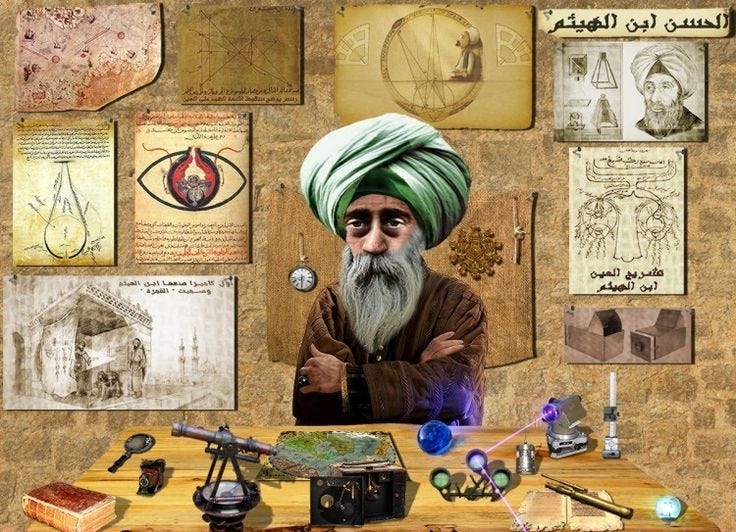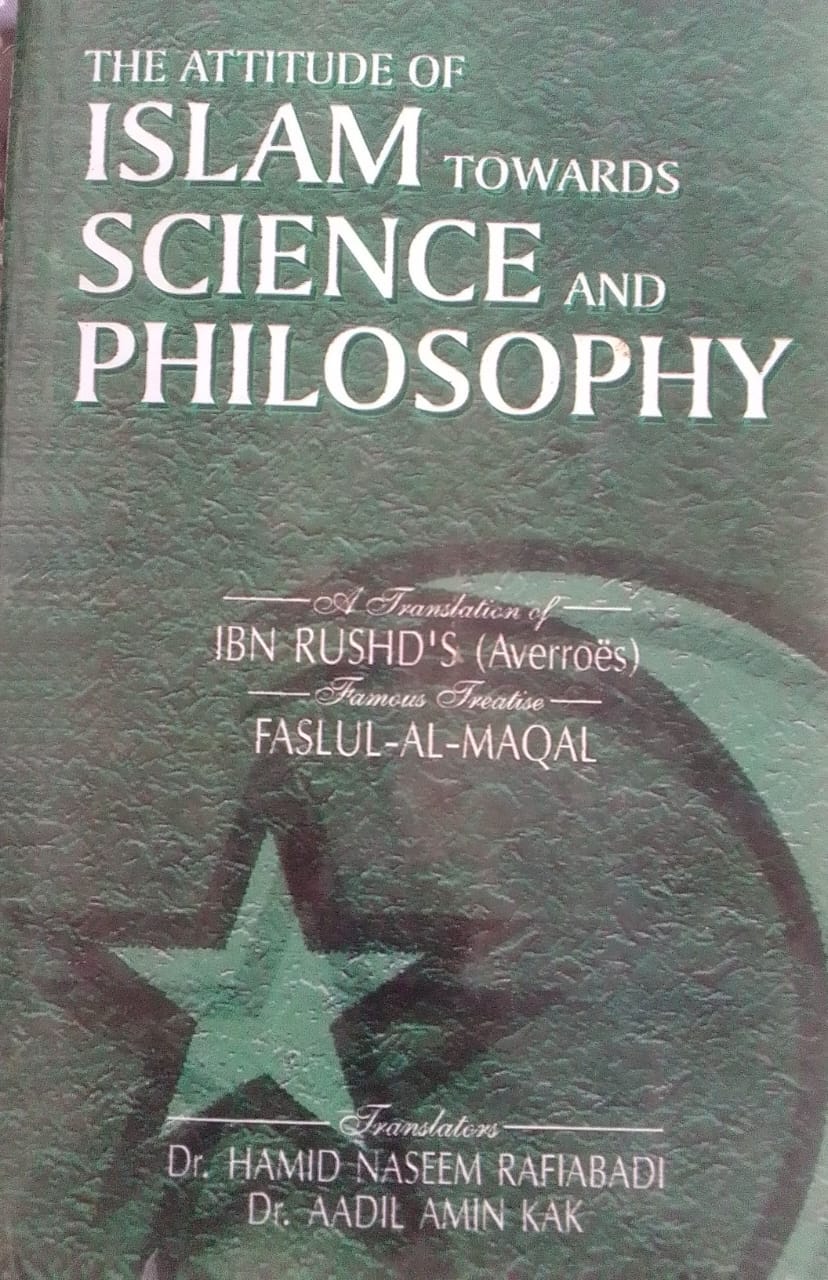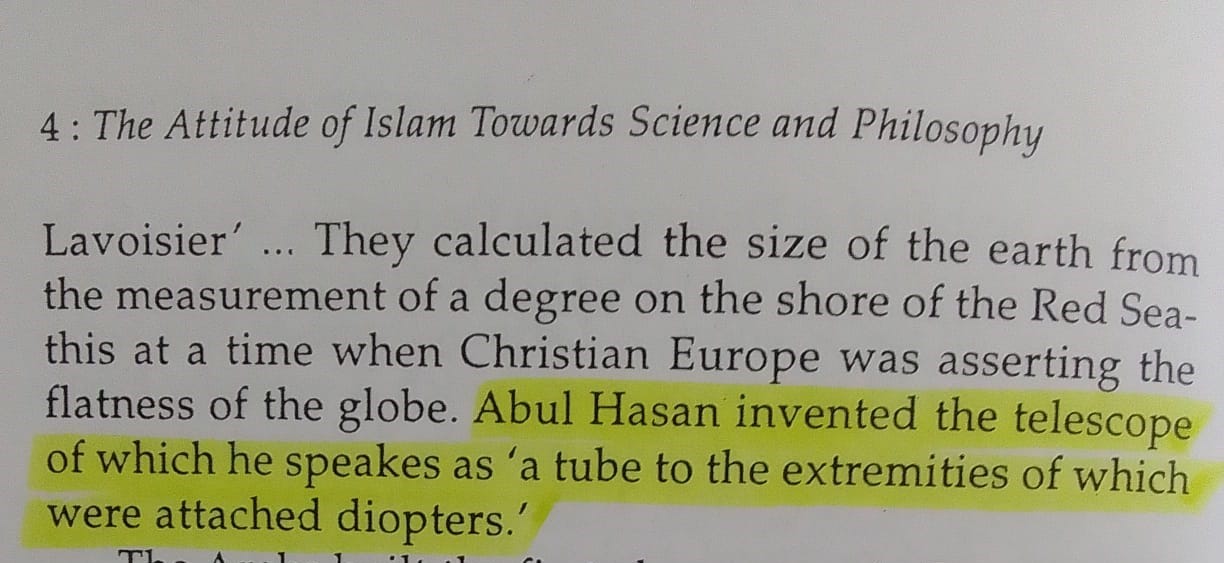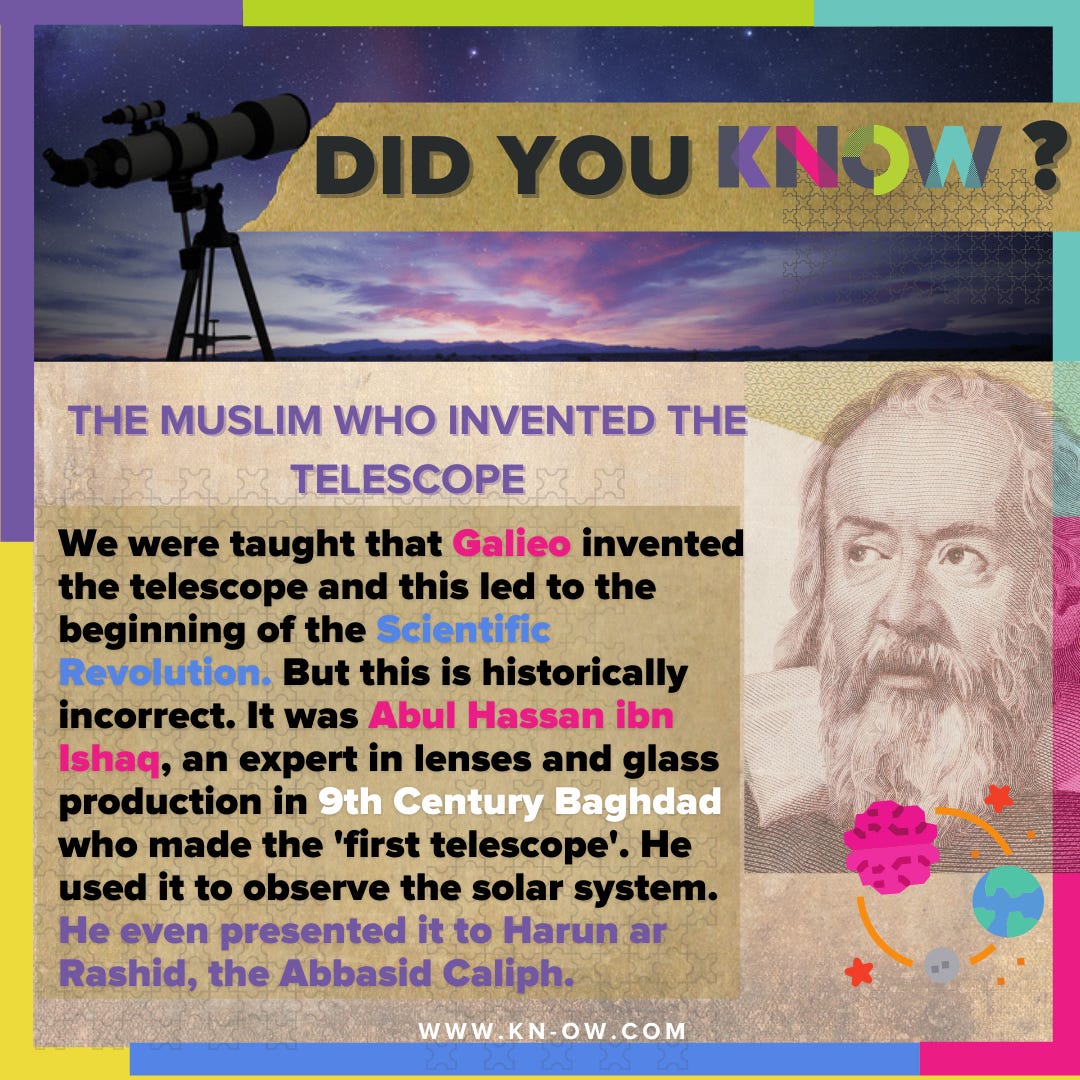How a Muslim invented the Telescope centuries before Galileo
White supremacy and the curious case of Galileo's Telescope:
Every civilization has its myths and the same is true for our civilization as well. The myth and the civilization emerge out of a paradigm and at the same time feeds the paradigm as it develops. The emergence of Modern Science is one of the most significant events in human history. But the religious fervor with which it's story is narrated, taught and propagated is no less apocryphal and at times dramatic, hence falling short of historical authenticity.
One of the ways this tale is narrated is that when human beings in general, but white European men in particular managed to extend their vision beyond their limited being on to the vast recesses of the universe, that is when a new chapter in human history began. This is the time that saw the invention of the telescope.
The tale
The invention of the telescope changed humankind's perspective of the universe forever. It was probably inevitable that as glassmaking and lens-grinding techniques improved in the late 1500s, in Europe that someone would arrange convex and concave lenses in such a pattern that would bring distant objects near. Makes perfect sense. Just that the picture is incomplete. The existence of expertise in glass making and lens grinding goes well before Europe, and in a different culture- The Islamic World.
Without exception all texts in the English language report that the first person to apply for a patent for a telescope was Dutch eyeglass maker Hans Lippershey (or Lipperhey). In 1608, Lippershey laid claim to a device that could magnify objects three times. His telescope had a concave eyepiece aligned with a convex objective lens. One story goes that he got the idea for his design after observing two children in his shop holding up two lenses that made a distant weathervane appear close.
But the main figure who gets the big share of the credit of inventing the telescope is the famous Italian Astronomer, Galileo Galilei. Legend has it that news of the 'Dutch perspective glass' reached Galileo Galilei in June 1609, while he happened to be in Venice. In a matter of days, Galileo had designed his telescope without even setting his eyes on one. After making improvements to his initial design, Galileo presented his device to the Senate in Venice. Besides, Galileo is believed to have been the first human being to point a telescope towards the sky thus making out the craters and mountains on the moon and even observing the Milky Way. Galileo also discovered that Jupiter had its moons and the sun has sunspots. [1]
But the problem is that It's not just restricted to the invention, but Galileo then went on to become the hero of the tale, the Father of the Scientific Revolution and the first prophet of the modern scientific age. Even though most of his theories had precedents in the Islamic and Greek world. But collectively all this, created a narrative that perfectly fit the scheme, the paradigm and the myth that were needed to define the Modern Western civilization as the culmination and perfection of all previous traditions that rendered previous traditions obsolete or at least primitive. Just that this tale has an issue. That, it's just that. A tale !
The historical context
Sometimes a little bit of common sense along with some knowledge of the historical context can take one a long way in understanding past events. And so we summon it. As we mentioned earlier, European science did not develop in a vacuum. Rather, it drew massively from the Islamic world. So when it came to glass and lens making, Medieval Muslims had great expertise, along with the scientific breakthroughs they made in the fields of geometrical and physiological optics. Ibn al Haytham's books were well known in Europe and translated into Latin very early on. He is often mentioned in early western literature on the subject by Roger Bacon, Robert Grosseteste, Witelo and he influenced Galileo, Keplar and Newton. [2]
Trade and import of glass products, lenses and other glass products flourished in Italy, Andalus and through Byzantium. [3] The beautiful stained-glass windows in cathedrals across Europe are artifacts of the Islamic influence on European architecture. [4]
Moreover, Astronomy was one of the few sciences that was developed in the early years of the Islamic civilization. Some even date the development of Astronomical sciences before the great translation movement, positing that the translation movement served as an aid for further research, rather than the initial impetus. [5]
Anomalies encountered in Ptolomy's astronomical models must have created the vacuum needed for the invention of an optical device that unveiled the celestial motion. Keeping all this in mind, it makes perfect sense that if a telescope was invented in the Muslim world, it would land up on the shores of Italy in some time.
Deconstructing the 'Galileo' myth
Without exception, all English texts on the subject, be it online articles, history of science papers or encyclopedias, attribute the telescope to either Lippershey or Galileo. This is such a widely disseminated myth that even children are subject to it, as textbooks around the world falsely attribute the invention of the telescope to Galileo, branding him the Father of Modern Science. History shows otherwise.
So let's start with lenses. Scanning through history books on Islamic technology we find extensive mention of the Muslim expertise in lens making, even to the extent of discussing inventions of optical aids, spectacles and other observational instruments. Notable among these are the telescopic shaped observational instrument of Al Biruni [6], the sophisticated observational devices used in the Maragha observatory that were recreated in Europe. [7] Even spectacles were invented as early as in the 11th century in the Muslim world, centuries before they showed up in Europe. [8]
Going from this prowess at designing optical instruments to a fully functional telescope shouldn’t be a big leap. Even common sense says that if people are already proficient with creating visual instruments, why should it take 700 years and someone from a different culture to combine lenses in a manner that magnifies a far off object? And so our intuition is right. It was even before Biruni and Ibn al Haytham another Muslim scientist had already had a paved the way for the world's first telescope. Welcome Abul Hasan Ibn Ishaq.
The Muslim who invented the the Telescope, centuries before Galileo
Abul Hasan Ibn Ishaq (d. 890), though being a Muslim himself, originally came from a Christian family in Baghdad and was taught several languages such as Greek, Arabic, Aramaic and middle Syriac. He started off cutting glass and working on lenses and suffered weak vision due to staying up late and writing texts and results of experiments. He was one of the translators during the rise of the Dar ul-Hikmah movement in which the Abbasids had him and others translating works and used to be paid in gold whatever the weight was of the books he translated. Translators in that time were paid amounts even more than NBA and football athletes today.
Being good with lenses, he created the world's first bifocals. So by the 9th century eye glasses were already invented in the Muslim world. Bifocals are eye glasses with two optical powers. On the contrary, it is widely held that spectacles were invented in 14th Century Europe and Benjamin Franklin invented the Bifocals. Both of which are historically incorrect. Then Abul Hasan ibn Ishaq went on to arrange lenses in such a manner that could bring celestial objects close. He succeeded in producing the world's first telescope as early as in the 9th Century, which is seven centuries before Galileo. [9] Undoubtedly the Islamic civilization was centuries ahead of its time.
After observing the solar system through his new invention, he then went on to share his breakthrough with his patron, the Abbasid Caliph, Harun al Rashid. The Caliph, impressed with the device, put it to military use. Thus, Abul Hasan ibn Ishaq's telescope found use as binoculars. Now some discussion on the original Arabic source that documents Abul Hasan's breakthrough.
Arabic historical sources- Colonial myth breakers
There is a massive difference between European texts written before the Crusades and after. The ones written before tend to contain sufficient references back to Islamic sources. But texts during and post Crusades sparingly cite Muslim sources. Is it because of the absurdity of fighting the same people from whom you draw your scientific knowledge from? This trend kept up till the Colonial period. How can you possibly colonize a people and still admit to their primacy and technological prowess. Those two don't fit, hence one has to go. We all know which one was sacrificed. Hence, this was time of the earliest Orientalist texts that launched the most scathing intellectual attacks on not only the religion of Islam, but also the blessed and holy character of the Prophet Muhammad (saw) and the rich intellectual and scientific tradition his followers produced.
Things have changed in the last few decades with the growing interest in studying the history of Islamic Science. But it's still not enough to do justice to the rich scientific tradition that flourished in the Medieval Islamic world.
According to Professor Salim al Hassani, “there are 5 million manuscripts from the Islamic Golden Age in libraries around the world, out of which only fifty thousand have been studied.” Only time will tell what new information those will bring to the fore, that may enhance our understanding of the history of science and transfer of technology from the Muslim world to Europe. [10]
Interestingly, the Arabic historical source from which we have derived this useful information about Abul Hasan ibn Ishaq, does not come under the category of veiled manuscripts lying in library shelves waiting to be explored. But from a regular history work. That does tell us how underdeveloped this field is and the attention it requires from scholars and historians, especially Arabic speaking scholarship who would go back to original sources to study the history of Islamic science from the lens of the people who witnessed this period that deserves to be called the first scientific revolution.
The source which refers to Abul Hasan ibn Ishaq's telescope and bifocals is Tarikh Madinat al Salaam written by Sunni scholar, historian and narrator and collector of Hadith, Khatib al Baghdadi. In his 23 volume historical survey on the Medieval Metropolis- Baghdad or Dar us Salam as it was named, dwells into interesting details on the architecture, culture, people of Baghdad at the time.
I am very grateful to Shaykh Abu Ja'far al Hanbali for painstakingly reading through Arabic historical texts and providing us with this eye-opening piece of information.
I even found a reference to Ibn Ishaq’s ‘pre-Galileo’s telescope in a book entitled ‘The Attitude of Islam towards Science and Philosophy: A Translation of Ibn Rushd’s famous treatise Fasl ul al Maqal."‘
How does it matter? Why the competition?
A clarification is required here, as this revision of the history of science must not be misunderstood as a mere exercise to determine which culture was more advanced and had primacy to technology? Neither should it be misinterpreted as a clash of civilization, the ‘us versus them’ mentality, made use of in the domain of history. Rather an amendment of this negative ideology is aimed at.
We live in a world where science has become the hallmark of knowledge and progress. Many thinkers highlight achievements made in their respective cultures with a supremacist mindset. This unhealthy practice was an integral part of the colonial rhetoric, and unfortunately still continues and is a true manifestation of the Us vs them mindset. A cropped picture of the history of science, where it is presented as a sole proprietorship of the white European man, is not only incorrect and misleading but represents the subtle forms of racism, sexism and chauvinism that promote violence and abuse be it at the international level or among individuals. Additionally, it is unhealthy and detrimental for the development of science as well.
Consequently, I have not discussed the development of the telescope in the Muslim world to prove the Islamic culture to be superior to other cultures on account of it's anticipation of modern technology. What made Islam great is not to be viewed from a narrow lens of science. What made Islam great is not the science and inventions that arose, but the culture of learning and devotion and the civilization of ethics, equality and pluralism that its adherents sought to produce. Definitely, there are things to appreciate in the modern global civilization as well. So then why do we need a reconstruction and revision of the history of science at all?
Firstly, it is important to understand the history of science. Plainly for the sake of understanding the history of inventions that changed the world. Secondly it would benefit the cultivation of science globally. Its is my opinion that introducing history of scinece as an elective course in the curriculem for all science related subjects studied at university level, atleast in Muslim intitutes, would be a great initiative. This way students would get a richer understanding of science as an ever developing and ever revising discipline, and not an absolute claim over reality. Moreover, this would lead to an increase scientific creativty and reduce islam vs scnece tension by formulation of sound islamic responses to evolution AI, QM, by a thorough survey of how the past Muslim scholars develped different sciences, how they dealt with the road blocks encountered in the combined study involving reason and revelation. And lastly, it is high time we peel off the colonial supremacist ideology that defiles curricula around the world. The world has seen enough wars, annexations and abuse of power that owes much to this ideology. The only way to combat this ideology is through knowledge and loads of it.
Watch the video on Ibn Ishaq’s telescope here.
References
[1] Palmieri, Paolo (2001). "Galileo and the discovery of the phases of Venus". Journal for the History of Astronomy.
[2] Authier, André (2013), "3: The Dual Nature of Light", Early Days of X-ray Crystallography, Oxford University Press,
[3] http://www.history-science-technology.com/articles/articles%207.html
[4] https://www.1001inventions.com/feature/glass/
[5] Saliba, George (2007), Islamic Science and the making of the European Renaissance, Pg 15-19.
[6] https://muslimheritage.com/birunis-telescopic-shape-instrument/
[7] Suhayl: International Journal for the History of the Exact and Natural Sciences in Islamic Civilisation, Vol. 12 (2013), pp. 45-179.
[8] https://muslimheritage.com/invention-spectacles-east-and-west/
[9] Al-Baghdadi, Ahmad Al-Khatib, Tarikh Madinat is-Salam, vol.1, pp. 292-436, Dar ul-Maghrib il-Islamic, Beirut, 1422 (AD 2002)
[10] https://muslimheritage.com/interview-prof-salim-al-hassani/
[11] Rafiabadi, H.N, Kak, A.A. “The Attitude of Islam towards Science and Philosophy.”


